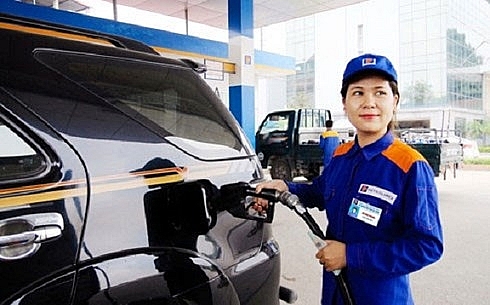Petrolimex and PV Oil oppose Saigon Petro's wish to return to RON A92
 |
| Saigon Petro proposed to reuse RON A92 petrol |
Nguyen Quang Dung, deputy general director of Petrolimex, told Vnexpress that Saigon Petro is just one of 29 petroleum distributors, and the remaining 28 distributors did not express agreement with Saigon Petro’s proposal.
Dung stated that during the bio-fuel E5 distribution process, firms have the right to list their difficulties as well as express their proposals. Petrolimex alone has yet to face any problems during the switch to bio-fuel since the middle of last December.
Dung added that it has been two months since the policy came into effect, which is not long enough to evaluate the effectiveness of the policy.
Cao Hoai Duong, general director of PV Oil, said that replacing RON A92 with bio-fuel E5 is a smart policy. The E5 sales have been increasing, making up 65 per cent of PV Oil’s petroleum sales volume.
Previously, Saigon Petro proposed to return to selling RON A92. Notably, in a document submitted to the Ministry of Industry and Trade (MoIT) and the Ministry of Finance (MoF), it reported that E5 sales only made up 30 per cent of total petrol sales.
| In order to stimulate customers to use bio-fuel E5, Saigon Petro proposed Vietnam to increase the selling price of RON A95 and increase the environmental protection tax on petrol in general and RON A95 in particular. |
According to Saigon Petro, after more than two months since the date set for the nation to switch from RON A92 to E5, 70 per cent of customers still use RON A95 for their vehicles, while only 30 per cent has switched to bio-fuel E5, despite it being cheaper.
Notably, the price of RON A95 is VND1,600 higher than a litre of bio-fuel E5. Besides, using RON A95 will not bring Vietnam closer to reaching its environmental protection target.
Due to the above disadvantages of RON A95 and the low percentage of E5 users, Saigon Petro proposed to return to selling RON A92.
Additionally, Saigon Petro proposed a range of solutions to turn customers away from RON A95 and increase E5 usage. Notably, the firm proposed the authorities to increase the environmental protection tax to VND4,000 per litre from VND3,000 on RON A95, while decreasing the tax on bio-fuel E5 to VND2,500 per litre.
Saigon Petro mentioned in the document that in order to stimulate customers to use bio-fuel E5 instead of RON A95, local authorities need to increase the selling price of RON A95, creating a price difference of VND2,000-2,500 or 20 per cent instead of the existing VND1,600 or 8 per cent.
Saigon Petro's proposal to return to selling RON A92 petrol raised questions as to why the company is going against the government’s policy to switch to bio-fuel E5.
| Since January 1, 2018, the nationwide switch from RON A92 to bio-fuel E5 has been in effect. According to statistics published by Deputy Minister of Industry and Trade Do Thang Hai in early February, the use of bio-fuel E5 has been increasing rapidly, making up approximately 65 per cent of total petrol sales. Bio-fuel E5 sales in certain cities and provinces accounted for up to 80 per cent of total petrol sales, Hai said, adding that the average rate nationwide was some 60-65 per cent. According to PV Oil, E5 bio-fuel sales at its stations reached 600-650cu.m per day, increasing 2.5 times against last year and accounting for 70 per cent of its total petrol sales. |
What the stars mean:
★ Poor ★ ★ Promising ★★★ Good ★★★★ Very good ★★★★★ Exceptional
Related Contents
Latest News
More News
- Vietnam among the world’s top 15 trading nations (January 28, 2026 | 17:12)
- Vietnam accelerates preparations for arbitration centre linked to new financial hub (January 28, 2026 | 17:09)
- Vietnam's IPO market on recovery trajectory (January 28, 2026 | 17:04)
- Digital economy takes centre stage in Vietnam’s new growth model (January 28, 2026 | 11:43)
- EU Council president to visit Vietnam amid partnership upgrade (January 28, 2026 | 11:00)
- From Vietnam to the world: Pizza 4P’s global journey (January 28, 2026 | 10:58)
- Vietnam entering a new growth phase in 2026 (January 28, 2026 | 10:02)
- SHIFT project launched to steer capital towards green growth (January 28, 2026 | 09:52)
- GEVA a launchpad for Vietnam’s agricultural exports (January 26, 2026 | 12:03)
- France supports Vietnam’s growing role in international arena: French Ambassador (January 25, 2026 | 10:11)

 Tag:
Tag:


























 Mobile Version
Mobile Version